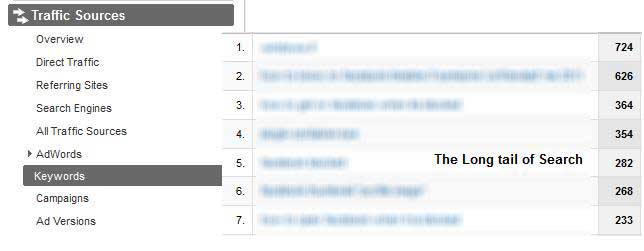Doing keyword research is like being a detective: you're always searching for those tiny, but valuable clues that decide the fate and future of a case you are handling. You can never arrive at a conclusion without clues and evidence, so you should master keyword research if you are serious about the words "sales," "profit," and "conversions."
Many webmasters make common keyword research mistakes and are later surprised that their campaigns are not producing results. They have all the technical details, data, scope, and so on, but one small mistake sinks the entire ship.
Before trying your hand at researching a keyword and targeting a few phrases, learn the following four pitfalls you should steer clear of.
1. Targeting Keywords You Think Are the Best match for Your Company
"You know what? I think we should target the phrase 'blue sportswear for men' because our research shows that men are looking for blue sportswear," says one of the data analysts at your company.
But that is a trap! You are prejudging the user, which you should avoid doing at all cost.
Of course, your data analyst has all the data and your company's previous sales records, but when you are marketing a product to a global audience, never prejudge and arrive at a decision from your perspective.
Instead of targeting exact-match keywords, try finding out which keywords users actually type on Google, Yahoo, Ask, and other search engines. Common users are not familiar with all the common product names, so you should start by putting yourself in users' shoes and then begin your keyword research and analysis.
Here are some options worth considering:
- Set up a poll on your website and ask users to type the name of the product they like using.
- Create a social media campaign and track user responses, feedback, questions, and opinions.
- Use your Google Analytics data to see which keywords and phrase combinations users are typing into search engines that bring them to your landing pages.
- Master the usage of Google AdWords keyword tool and Wordtracker.
After analyzing all those campaigns, you will have a rough idea about user viewpoints. I am certain that the results from your internal data analysis will be very different from the user data analysis.
2. Not Considering the Competition
"Hey, the phrase 'blue sportswear in Denmark' gets the highest hits, so we should definitely use this phrase for keyword marketing."
That assumption is only partially true. If you are targeting a very popular keyword, you have to cut through enormous competition. And that competition will most likely increase over time.
It is very difficult to target popular keyword phrases and get fruitful results from your campaign. You have only a slight chance of landing in the top three results, because thousands of other webmasters are already spending their time, money, and resources to gain the first spot.
To avoid this pitfall, ask yourself the following four questions:
- Do I have enough incoming links to the landing page for which I am targeting this very popular keyword? (By incoming links, I mean those you get naturally, not paid links.)
- What is the status of my nearest competitors? How many links do they have, and how popular are they?
- Will I be able to offer enough value (e.g., relevant products, affordable prices, freebies, and goodies) to users who arrive at my landing page? How much relevant content do I have on my website to support my pillar page for the keyword I am targeting? For example, you wouldn't target "T-shirts for Manchester fans" if your website sells Barbie dolls.
If the answer to any of those questions is not favorable, you are probably aiming at something out of reach.
My advice would be to "start small" and grow over time. Target keywords that have low competition, and grab those users who want something nobody has offered till now. Those small pages add up, and they will help you create a firm base for targeting those really popular keyword phrases.
3. Avoiding Phrases and Choosing Single-Word Keywords
"Nobody is going to type such a long phrase. Maybe we should target single-word phrases that are more general."
Single-word phrases are not precise and are hugely competitive. Furthermore, single-word keywords do not cater to your needs because you want to sell "T-shirts for Manchester fans," and not everything related to "Manchester."
Times have changed. The year is no longer 1999. Web users are more search-savvy by the day, and webmasters are seeing many more variations and combinations of central keywords. By being specific in your keyword research, you will filter all the useless traffic, allowing you to concentrate on the core audience more effectively.
4. Not Tracking Conversions and Goals in Google Analytics
No matter how extensive or minimal your keyword research might be, if you are not tracking results you are throwing stones into the darkness. You have to track what works and what doesn't... because nothing will go as planned.
You have to regularly monitor and track results using Google Analytics or other site analytics tools.

By tracking goals and conversions, you'll be able to filter keywords according to priority. It is highly possible that a less-popular phrase that gets only a few searches results in a huge conversion ratio. So it's worthwhile to target the phrase that drives more conversions, not just more visits.




